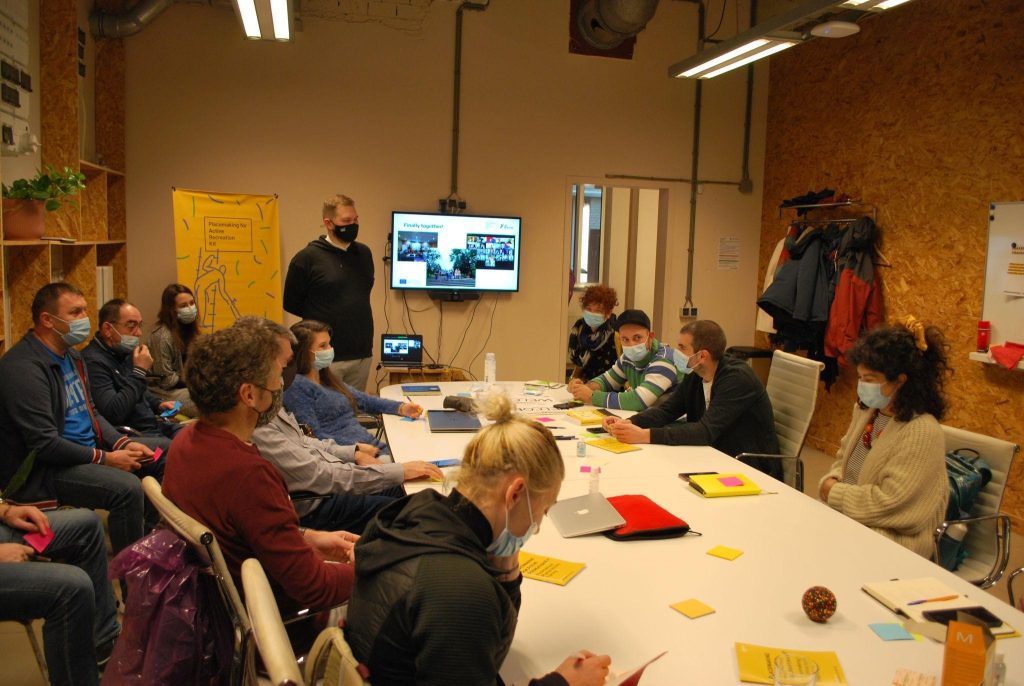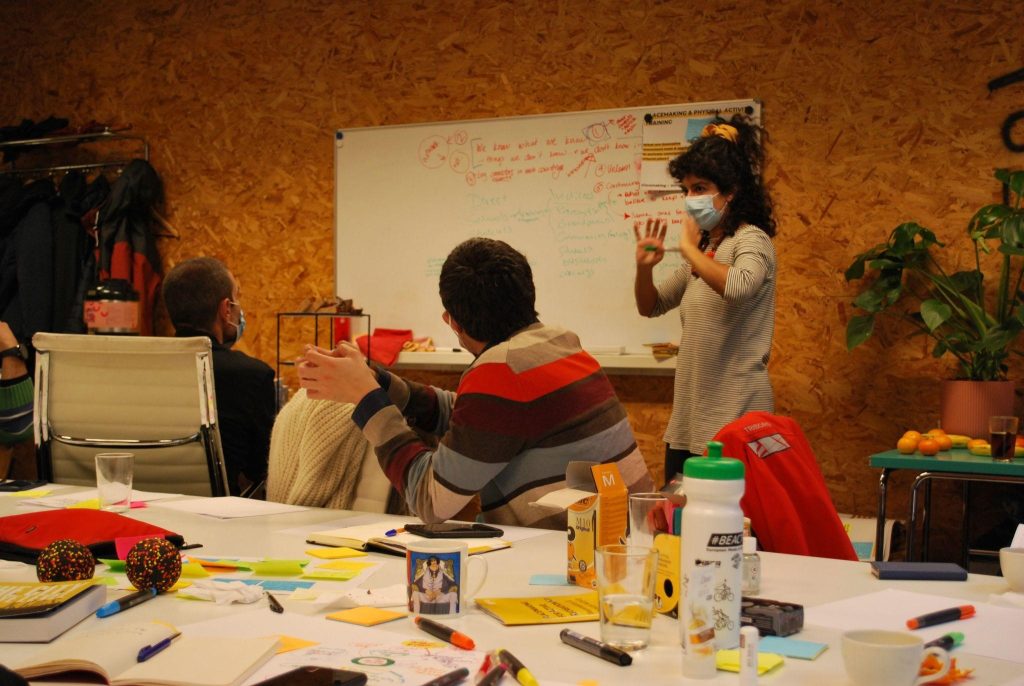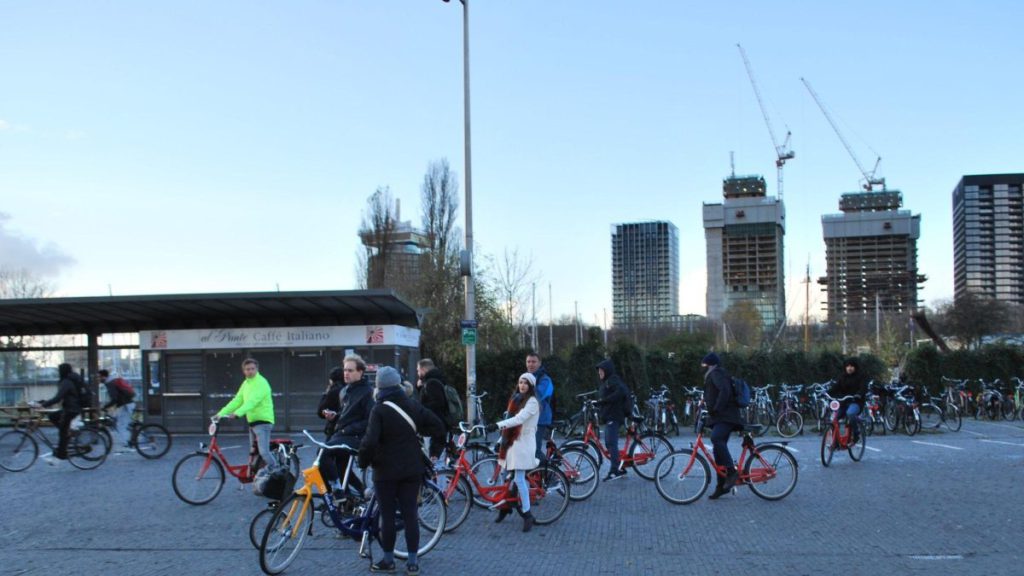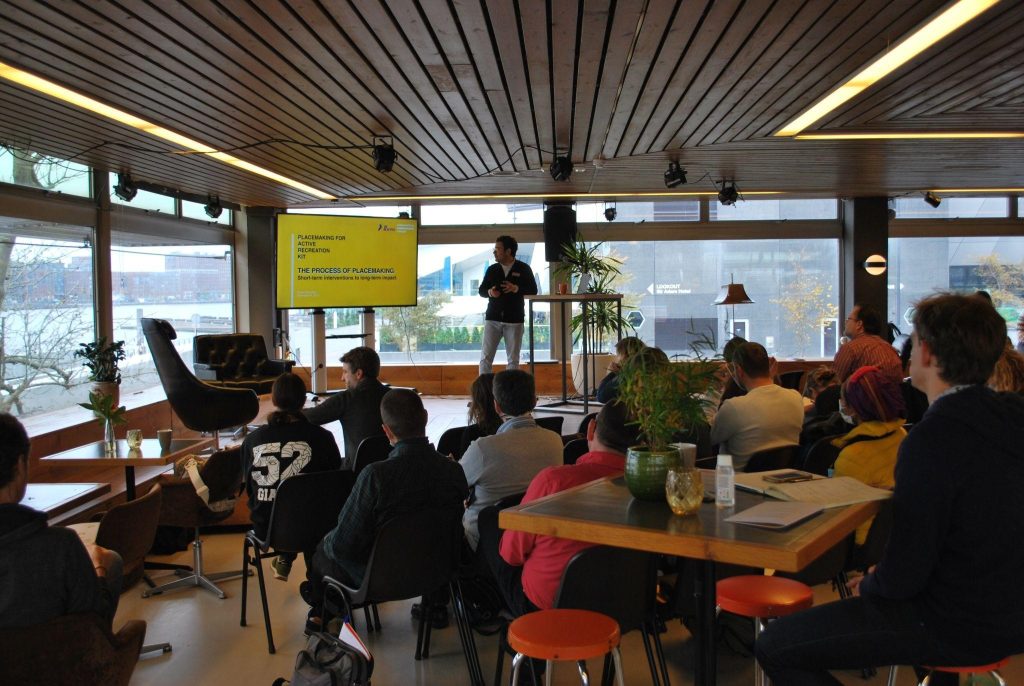Placemaking for Active Recreation Kit brought to Amsterdam partners from six European countries in search of the best ways to create synergies and combine knowledge and wisdom from the grassroots-sports and placemaking fields. The project’s aim is to heal the cities of Europe and make them beautiful and active. PARK envisions functional cities from Bulgaria to Denmark, from Malta to Romania, and from Spain to the Netherlands, encouraging community pride and ownership and helping citizens use public spaces creatively to be active in the city on a daily basis.
While the external environment was uncertain, BG Be Active as a leading organisation of the Erasmus+ Sport project PARK was able to successfully hold the third meeting of the project in the Netherlands. As the busy meetings in Amsterdam came to a close, Project Coordinator Vladislav Fedorov shared some of his thoughts regarding the true value of the project „When nothing is certain, anything is possible. At first, it seemed like a hard task to bring so many different perspectives, views, and understandings on the table, and channel the energy into creating a PARK for all, but this meeting has only made me more excited about the enormous potential this project holds and the value PARK can create for the cities of Europe and all who dare to experiment”.

The third project meeting was a great opportunity to review and present the result of the work conducted in the months before the meeting. The first intellectual output was up for a final review and celebration as a collective achievement by the consortium. The next steps include evaluation and short-listing the most appropriate PARK tools, and presenting them interactively and vibrantly to support all who show interest in the process of activating communities around places. The group moved closer to the next project activities such as the creation of the toolbox, which will highlight good practices from across Europe and offer innovative movement tools and methods.



The Placemaking for Physical Activity Toolbox project has been funded with support from the European Commission. This article reflects the views only of the author (BG Be Active), and the Commission cannot be held responsible for any use which may be made of the information contained therein.